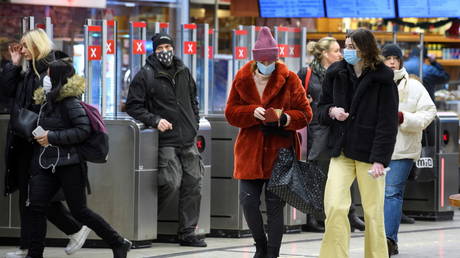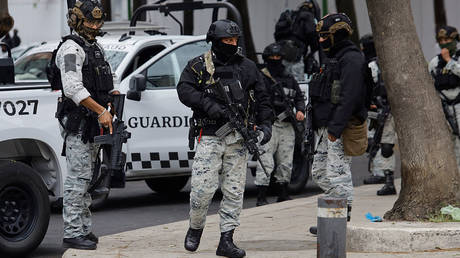
The Swedish government, which was previously reluctant to impose tough Covid-19 restrictions, has now proposed vastly expanding its lockdown powers, as the country warns of a third wave of infections.
“It could become necessary to close down parts of Swedish society,” Health Minister Lena Hallengren said at a press briefing, adding that there is “a tangible risk of a third wave of infection.”
“A third wave is underway in Europe. We have to be vigilant,” she said.
The statement came a day after Karin Tegmark Wisell, a senior official at the nation’s Public Health Agency, warned of a “very high number” of Covid-19 cases in Sweden.
More than 19,600 new cases of Covid-19 were recorded in the latest weekly report, published by the Swedish government on February 12.
The government already has powers to close down shopping malls. Officials now want to be able to close down all retailers, restaurants, gyms, hair salons, and swimming pools, and restrict the operations of amusement parks, zoos, museums, and art galleries. Under the plan, local authorities would be given powers to limit activities in public parks and bathhouses.
All of these proposals will be presented for further consultations by February 26, the government said in the statement. The new rules will likely come into effect on March 11, according to local media.
Hallengren said that an overall assessment of the situation is needed before any lockdown measures can be enacted.
“A plateau and a slight increase [in Covid-19 cases]are not enough for a lockdown. We will make it clear, when it becomes relevant,” she said.
Unlike many European and fellow Nordic countries, Sweden has been very reluctant to impose strict coronavirus restrictions, such as a nationwide lockdown or mask mandate. Officials have relied heavily on people voluntarily following health recommendations and on contact tracing.
The policy, which came to be known as the ‘Swedish model’, has drawn criticism both at home and abroad. Sweden’s reigning monarch, King Carl XVI Gustaf, said in December that the strategy proved to be a failure.
The rise in infections prompted Sweden to adopt a ‘pandemic law’ in January 2021, which allows for more restrictive measures. The country strengthened border control earlier this month, requiring foreign nationals to present a negative Covid-19 test upon arrival.
Meanwhile, several regions have warned that they may not reach their vaccination targets because the deliveries of vaccines are too small. Prime Minister Stefan Lofven told TT news agency that it may take longer than expected. “We should be clear about that,” he said.
Over 622,100 people have been infected with the coronavirus in Sweden since the start of the pandemic, and nearly 12,600 have died, according to government data.
Think your friends would be interested? Share this story!




